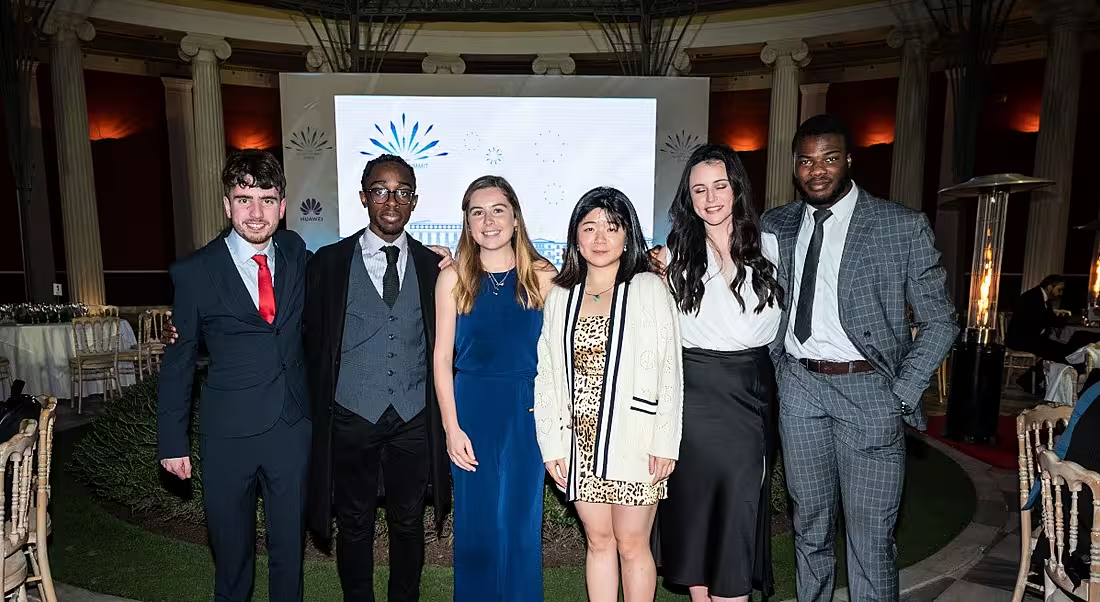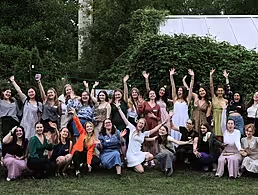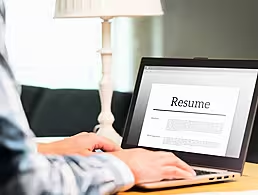Computing for business student David Chima learned a lot on Huawei’s Seeds for the Future programme, not least how to create an app from scratch.
Early career programmes are a great opportunity for ambitious albeit inexperienced people to learn about working in a particular industry. There are loads of these types of programmes out there, especially in the STEM sector. But few mix culture, technology and competition in quite the same way as Huawei’s Seeds for the Future does.
The Chinese tech giant started running it in 2017 and it has been expanding it gradually ever since. Last year’s iteration saw 50 Irish-based STEM students awarded scholarships of €5,000 each. They were picked to receive the cash from a pool of 100 2022 Seeds for the Future participants. The scholarship award and the chance to learn about the latest technology is highly attractive to students and the programme receives hundreds of applicants every year.
Wide range of tech topics, plus Chinese culture
David Chima was one of last year’s Seeds for the Future participants, and he told SiliconRepublic.com about the experience. “I learned about a wide range of topics and technologies, including 5G, cloud computing, AI, IoT, digital power and Chinese culture,” he said. Huawei’s addition of Chinese culture components to the otherwise quite tech-heavy programme is inspired, not least because China is a significant tech and business market so some knowledge of its culture and traditions won’t do participants any harm.
When Chima took part in the week-long programme last year, he was in the middle of a college course in computing for business. “It was an insightful week where I was able to understand more about current technological trends and developments, all while getting a taste of the lively Chinese locations and traditions,” he recalled.
Learning about tech in a hands-on way as part of the workshops was “a huge boost” for him. As he pointed out, all of the topics apart from Chinese culture were covered to a certain extent in his college course.
Learning curve
“It was great to be able to revise while also gaining new knowledge.” The experience was also a learning curve for him as he had to balance a week of intensive workshops on top of his coursework demands. “It was a challenging week for me. I was doing college work the whole time so it was hard to keep a good balance. There were a few late nights because I would have a lot of work to catch up on.” But Chima wouldn’t change much about the experience as a whole. The intensive nature of the workshops was a taster of things to come in the real world of work, he realised.
He also got the opportunity to compete in Huawei’s flagship Tech4Good competition, which challenges participants to come up with a tech-based idea that improves society. He worked as part of a team to create a project called Roll On, a product for wheelchair users travelling on public transport.
‘If you think the programme lines up with your goals and interests, go for it. You should always take an opportunity for new experiences and growth’
“We came up with it after realising the struggles that wheelchair users have when boarding trains. The Roll On is essentially an automated ramp that enables wheelchair users to board trains independently. It aligns itself with the doors of a railway carriage using infrared/photocell sensors and AI-powered computer vision, and then extends the ramp so that the wheelchair user can ‘roll on’ or enter the train,” explained Chima. “It creates a communication channel between the ‘Roll On’ itself, the user, and the train conductor using cloud computing connected via 5G with the Roll On app.”
It’s a fantastic idea, but Chima is honest enough to say it didn’t come to the group effortlessly. “It also took a while for our team to come up with an idea for the project. Our plan on day one was completely different to what we came up with on day two and eventually stuck with.” Overall, he feels the project “was a great learning experience in more ways than one”.
“It helped me to realise more about the current problems in our society and how we can look at a technological approach to solve them,” Chima said, adding that his understanding of some of the ethical considerations around AI has improved a lot thanks to the experience.
In a more short-term sense, the experience has provided him with more entrepreneurial knowledge and pointers he can use in the creation of his final year project at college.
His advice to this year’s batch of Seeds for the Future and Tech4Good participants? “Make the most of it. Opportunities like this are hard to come by. If you think the programme lines up with your goals and interests, go for it. You should always take an opportunity for new experiences and growth.”
10 things you need to know direct to your inbox every weekday. Sign up for the Daily Brief, Silicon Republic’s digest of essential sci-tech news.




